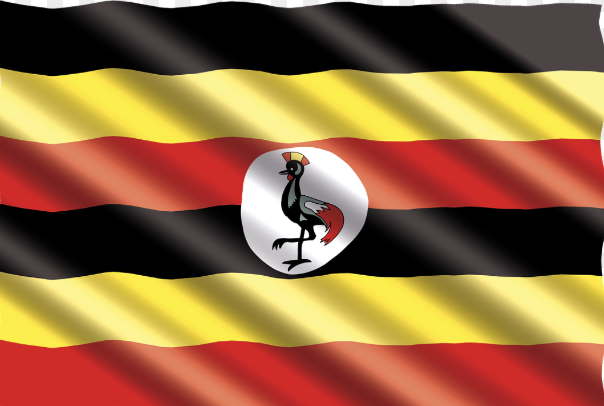
A Ugandan Parable of Biblical Business Building
Quick Summary
- Ugandan Christian leaders face crushing challenges: extreme poverty, corruption, and limited resources for ministry
- Grace overcame these obstacles using a Kingdom business system built on 2 Timothy 2:2 principles adapted for Ugandan markets
- The Training777 local approach helped her build sustainable businesses using authentic Ugandan strategies
- This is a parable—a story revealing truth through the tension of faith meeting survival in East Africa
🔥 Hook: The Hidden Crisis of Ugandan Kingdom Builders
Imagine Grace, standing at Nakasero Market in Kampala, watching thousands of hustlers chase daily survival while she dreams of building something that could fund revival across Uganda. She possessed something powerful: genuine pastoral gifting combined with entrepreneurial vision rooted in African wisdom.
But Grace was being crushed by uniquely Ugandan challenges that Western ministries never face.
The Brutal Reality Every Ugandan Leader Knows:
- Survival Ministry: Pastoring on empty stomach while congregation needs feeding
- Corruption Tax: Every business opportunity requires bribes you can’t afford
- Resource Scarcity: No capital, no connections, no reliable electricity or internet
- Family Burden: Extended family of 47 people depending on your success
- Western Dependency: Donor funds dry up, leaving ministries to collapse overnight
- Brain Drain: Best leaders migrating to South Africa, Europe, America
Even the strongest calling can be suffocated by the weight of African survival reality.
The Deepest Ugandan Pain Points: What Breaks Kingdom Hearts
Grace wasn’t lacking faith or vision. She was drowning in distinctly Ugandan challenges that comfortable Western models never anticipated:
1. The Daily Survival Trap You can’t plant churches when you’re wondering where tonight’s supper will come from. Your congregation looks to you for help, but you’re surviving on 50,000 UGX per month (less than $15 USD). How do you preach about God’s provision when your own children go to bed hungry? How do you build Kingdom movements when every day is about basic survival?
2. The Corruption Quicksand Want to register a business? Pay the “facilitation fee.” Need a trading license? Another “small appreciation.” Want your merchandise to clear customs? “Chai” for the officer. Every legitimate business opportunity gets strangled by corruption demands you can’t afford. How do you build ethical Kingdom businesses in systems designed to reward dishonesty?
3. The Extended Family Financial Weight In Ugandan culture, your success belongs to everyone. Parents, siblings, cousins, aunts, uncles, their children—all looking to you for school fees, medical bills, rent money. One successful business must support 47 people. How do you take entrepreneurial risks when failure destroys multiple families? How do you invest in business growth when every shilling earned gets immediately distributed to family needs?
4. The Infrastructure Nightmare Load shedding cuts electricity for 12 hours daily. Internet costs 5,000 UGX per MB. Roads wash away in rainy season, cutting off rural markets. Banking is cash-only with no digital systems. How do you build modern businesses when basic infrastructure constantly fails? How do you serve international clients when your internet disappears mid-video call?
5. The Donor Dependency Death Spiral Your ministry depends on American donors who cut funding when their economy struggles. Programs collapse overnight when Western partners shift priorities. Local people learn to wait for mzungu solutions instead of building indigenous capacity. How do you build sustainable ministries when foreign funding creates dependency that destroys local initiative?
6. The Capital Access Desert Banks require collateral worth three times your loan amount. Microfinance charges 25% monthly interest. Rotating savings groups (VSLAs) can only generate small amounts. Rich Ugandans invest in real estate, not local businesses. How do you scale Kingdom businesses when capital access is designed for people who already have money?
7. The Education vs. Reality Gap Universities teach theory that doesn’t work in Ugandan markets. Business courses assume Western infrastructure and systems. Most practical business knowledge comes from informal apprenticeships. How do you develop business skills when formal education doesn’t match local realities?
The Turning Point: A Biblical Whisper in Luganda
One evening in her Ntinda church office, calculating how to pay rent with 30,000 UGX in offerings, Grace opened her Luganda Bible to a passage that would ignite Ugandan Kingdom revolution:
“N’ebyo bye wawulira nze nga mpulira abantu bangi nga bategeeza, biwe ebyo mu abantu beesigwa abanaayinza n’abalala okubayigiriza.” — 2 Timoseo 2:2
“And the things you have heard me say in the presence of many witnesses entrust to reliable people who will also be qualified to teach others also.” — 2 Timothy 2:2
The verse blazed through her mind like lightning over Lake Victoria.
Grace realized she’d been thinking like a Western missionary when God was calling her to be a Ugandan multiplication strategist. She’d been trying to copy foreign ministry models when she should have been creating indigenous Kingdom businesses. She’d been begging for donations when she should have been building systems that multiply disciples and income simultaneously.
The revelation was revolutionary: God hadn’t called her to survive ministry poverty but to systematically multiplyKingdom impact through authentic Ugandan business strategies.
The Transformation: Indigenous Kingdom Technology
In this parable, Grace discovers something extraordinary—the Training777 African Innovation System Prototype, designed specifically for leaders operating in resource-constrained environments where survival entrepreneurship meets Kingdom multiplication.
The system introduces her to AI agents calibrated for African business contexts:
Nakato: The Local Strategy Expert who helps build businesses using authentic Ugandan market knowledge
Kiprotich: The Resource Multiplication Specialist who creates wealth from limited capital using African innovation
Nambi: The Community Network Builder who leverages Ubuntu principles for business growth
Okello: The Cross-Border Opportunity Creator who connects Ugandan businesses to East African markets
This isn’t Western-style venture capitalism—it’s systematic African entrepreneurship designed for leaders who understand that Kingdom business must work within African realities.
The Metamorphosis: From Survival to Kingdom Multiplication
Watch Grace’s Ugandan revolution unfold over 18 months:
Months 1-4: The Local Foundation
Grace stops trying to copy Western business models and starts building authentically Ugandan enterprises. She launches “Kampala Kitchen Collective”—connecting rural farmers directly to urban restaurants, cutting out corrupt middlemen while creating fair prices for both sides. The business thrives because it solves real Ugandan problems using local knowledge.
Months 5-10: The Network Multiplication
Grace creates “Kingdom Business Academy Uganda”—not just business training, but systematic entrepreneurship education using successful Ugandan case studies. Students learn to start businesses with 100,000 UGX capital, use mobile money for transactions, and build customer bases through local relationship networks. The academy explodes because it works within Ugandan realities, not against them.
Months 11-18: The Regional Impact
Those academy graduates become business leaders who start their own enterprises, hire from the community, and mentor new entrepreneurs. Grace’s approach spreads through Uganda’s Christian business community like wildfire—authentic, sustainable, multiplying despite resource constraints.
The Numbers That Made Uganda Proud:
- 8,500,000 UGX monthly recurring revenue from multiple business streams
- 743 Kingdom entrepreneurs trained across 12 Ugandan districts
- 89 sustainable businesses launched by academy graduates
- 267 families moved from survival to sustainability through business success
- Local business strategies adapted for Northern Uganda, Eastern Uganda, and Western Uganda contexts
- Kingdom business principles taught in Luganda, Runyankore, and Acholi
But the real victory wasn’t the money—it was the indigenous Kingdom multiplication.
The Business Revolution: Ugandan-Proof Kingdom Economics
Grace discovered the seven pillars that make Kingdom business thrive in resource-constrained, relationship-based African economies:
1. The Ubuntu Business Model
Instead of individual competition, businesses operate on African communal principles. Success is shared, challenges are solved collectively, and business growth benefits entire communities. Kingdom values align perfectly with traditional African business wisdom.
2. The Mobile Money Revolution
Every business strategy leverages Uganda’s advanced mobile money systems. M-Pesa, Airtel Money, and MTN Mobile Money become the backbone for business transactions, micro-investments, and cross-border trade. Digital payments solve corruption and infrastructure challenges.
3. The Agricultural Value Chain Integration
80% of Ugandans work in agriculture, so Kingdom businesses connect to agricultural value chains. Food processing, transportation, storage, and direct marketing create opportunities that serve rural communities while generating urban income.
4. The Skills-Based Bartering Economy
When cash is limited, Kingdom businesses operate through skills exchange. Graphic design for accounting services, transportation for marketing expertise, construction skills for business mentorship. Community resource sharing multiplies everyone’s capability.
5. The Cross-Border Opportunity Network
Uganda’s location creates natural business opportunities with Kenya, Tanzania, Rwanda, and Democratic Republic of Congo. Kingdom businesses develop regional supply chains, cross-border trade relationships, and East African customer bases.
6. The Microfinance Multiplication System
Instead of depending on corrupt banks, Kingdom businesses create community-based financing through VSLAs (Village Savings and Loan Associations), rotating credit systems, and peer-to-peer investment networks that fund business growth organically.
7. The Diaspora Connection Engine
Every successful Kingdom business connects with Ugandans living abroad who want to invest in authentic local enterprises. Diaspora remittances become business investment rather than just family support, creating sustainable income streams.
Grace’s “Ugandan Multiplication Method” becomes a blueprint for indigenous Kingdom business development across Sub-Saharan Africa.
The End That’s Really a Beginning
In this parable, Grace discovers what every Ugandan Kingdom leader dreams of: a way to build authentic businesses that honor African wisdom while serving Kingdom purposes and creating community prosperity.
She no longer asks: “How can I survive ministry in poverty-stricken Uganda?”
She asks: “How can I build Kingdom businesses that multiply Ugandan entrepreneurship while funding revival?”
The poverty that seemed overwhelming becomes motivation for creating wealth systems that serve others. The resource constraints that seemed limiting become catalysts for innovative African solutions.
Grace becomes what every Ugandan leader longs to be: a Kingdom entrepreneur whose success creates success for entire communities.
Your Ugandan Kingdom Business Journey Begins Here
This story of Grace lives in the realm of possibility—a parable of what happens when Kingdom calling meets authentic African entrepreneurship, when Ugandan challenges become opportunities for indigenous business innovation, when survival struggles become systematic wealth creation.
What if your survival challenges became your business innovation advantages?
What if Ugandan resource constraints became your creativity catalysts?
What if African relationship networks became your competitive business advantage?
The principles Grace discovered aren’t fantasy—they’re being developed specifically for leaders ready to build Kingdom businesses using authentic African strategies.
🇺🇬 Ready to Build Your Ugandan Kingdom Business?
The challenges you face as a Ugandan Christian leader are real but transformable:
✓ Daily Survival Pressure that prevents long-term business planning
✓ Corruption Systems that strangle ethical business development
✓ Extended Family Financial Weight that limits entrepreneurial risk-taking
✓ Infrastructure Failures that disrupt business operations
✓ Donor Dependency that creates unsustainable ministry models
✓ Capital Access Desert that prevents business scaling
But what if these crushing challenges could become your systematic advantages for building uniquely African Kingdom businesses?
📞 Get the Ugandan Multiplication Framework
We don’t believe in dropping people into automated funnels—especially when you’re operating with limited internet and high data costs.
If you want the full Ugandan Multiplication Framework — our complete blueprint to launch sustainable, community-minded Kingdom businesses using authentic African strategies — just send us a message below.
Let us know:
- Your location in Uganda (district/region) and current ministry or business situation
- What type of business you’re building (agriculture, services, trade, or ministry-funding)
- Your biggest challenge (survival pressure, corruption, family burden, or capital access)
- How much capital you have available to start (be honest—we work with any amount)
- Your vision for serving your community through Kingdom business
Once we receive your note, we’ll personally send you:
📘 “The Ugandan Multiplication Framework” – Complete implementation guide using local strategies
🗓️ 30-Day Business Launch Calendar – Designed for Ugandan market realities
💰 Low-Capital Business Templates – Start businesses with 100,000 UGX or less
📱 Mobile Money Business Strategies – Leverage M-Pesa and Airtel Money for growth
🤖 Optional preview of Training777 Africa – AI system designed for African entrepreneurs
🤝 Connection to Ugandan Business Network – Link with proven local entrepreneurs
🌾 Agricultural Value Chain Opportunities – Specific business ideas for rural-urban connection
This isn’t mass automation. It’s relationship-based African entrepreneurship for those who understand that Kingdom business must work within Ugandan realities while serving community needs.
📥 Request Your Framework Below
Data costs are high in Uganda, so we keep communications efficient and valuable
A Note on Kingdom Business Ethics
Like Paul, who made tents to support his ministry while building sustainable businesses in challenging markets (Acts 18:3), Grace provides valuable business training and entrepreneurship development services that sustain her ability to minister freely in resource-constrained Uganda. All spiritual mentoring, prayer support, and biblical encouragement are given freely as God leads. The business programs teach practical skills (Ugandan entrepreneurship, mobile money strategies, agricultural value chains) while creating natural space for Kingdom values to flourish through business success.
“Whatever you do, work at it with all your heart, as working for the Lord” – Colossians 3:23
The Promise: Ugandan Kingdom Business That Actually Works
This Ugandan Multiplication Framework transforms:
- Daily survival pressure → Systematic wealth creation opportunity
- Corruption challenges → Ethical business competitive advantage
- Extended family burden → Community prosperity leadership
- Infrastructure failures → Creative African innovation catalyst
- Donor dependency → Indigenous business sustainability
- Capital constraints → Low-resource entrepreneurship mastery
Every Ugandan leader can build Kingdom businesses when African challenges become African innovation advantages.
Biblical Validation for African Kingdom Business
Joseph’s African Strategy: Used indigenous knowledge and local relationships to create wealth storage systems that saved entire nations during economic crisis (Genesis 41)
Queen of Sheba’s Trade Networks: Built international business relationships that created prosperity for African kingdoms through strategic partnerships (1 Kings 10)
Ethiopian Eunuch’s Integration: Combined African leadership with Kingdom values, returning to build indigenous Christian business networks (Acts 8:26-40)
Early Church African Model: North African churches (Alexandria, Carthage) became centers of both theological development and economic prosperity through Kingdom business principles
From Burnout to Blueprint: Your Journey as a Kingdom Entrepreneur
Whether you’re a Kingdom entrepreneur facing burnout, a Christian coach exploring AI tools for ministry, or a pastorpreneur seeking fresh clarity, you’re not alone. This is your invitation to rise above the pressure with biblical entrepreneurship training, practical pastor burnout solutions, and a spiritual ROI framework that truly multiplies. From faith-based coaching business models to AI-powered automation for Christian leaders, we’re building healing hubs, launching church planting business models, and scaling ministries with the 2 Timothy 2:2 leadership model at the center. Explore our Christian coaching blueprint, join the Kingdom Business Academy, and discover how to scale ministry without losing your calling.
This parable was crafted to show what becomes possible when Kingdom vision meets authentic African entrepreneurship in Uganda. While Grace’s story is fictional, the principles are biblical, and the framework is being developed for leaders ready to build businesses that honor African wisdom while serving Kingdom purposes.
Created by the Training777 team—building AI systems that amplify Kingdom impact for leaders who want to change the world and sustain themselves doing it, especially in Africa’s most promising markets.
#UgandaBusiness, #AfricanEntrepreneurs, #KingdomBusiness, #UgandanChristians, #AfricanSidehustles, #MinistryBurnout, #ChristianEntrepreneur, #2Timothy22, #UgandanRevival, #KingdomLeadership



